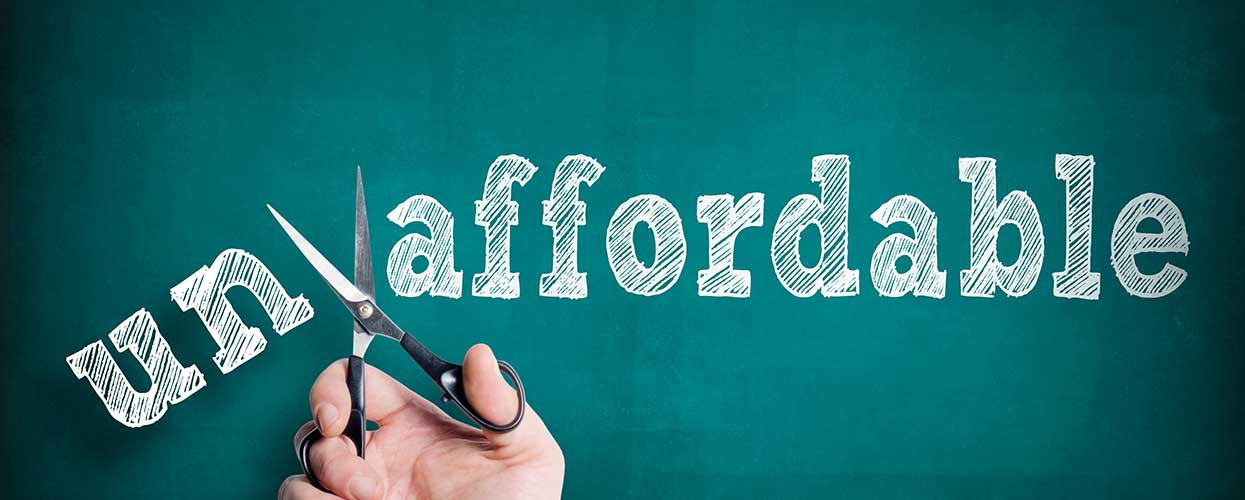Hey there, future homeowners! 🏡 It’s Matt Kelly, and today, we’re diving into the critical “don’ts” of the home-buying journey. While you’ve probably heard plenty about what you “should do,” understanding what to avoid is equally crucial when it comes to the most significant financial investment of your life.
Believe it or not, steering clear of certain pitfalls can be the key to securing better financing and, ultimately, landing the home of your dreams.
Sure, it’s easy to recognize some no-nos like switching jobs or co-signing loans, but did you ever think that something as seemingly innocent as depositing cash or splurging on new furniture could affect your mortgage prospects?
So, alongside your hefty “to-do” list, make sure to keep your “not-to-do” list within arm’s reach.
Let’s dive in to ensure you’re steering clear of these common missteps and staying on the right track as you prepare to make that first offer on your future home.

#1 Don’t Overestimate What You Can Afford
Before you even begin the house-hunting adventure, it’s essential to get pre-approved. Hunting for homes outside your budget is a recipe for wasted time and potential heartache.
It’s best to crunch the numbers yourself before meeting with a mortgage broker. Mortgage brokers often analyze your debt-to-loan ratio, aiming to keep it below 33%. Understanding your spending habits using tools like Mint or Itab can provide insight into your financial landscape. Replace your current rent or mortgage payment with an estimated monthly mortgage payment to ensure it aligns with your lifestyle.
You know yourself best. If you’re a travel and dining enthusiast, ensure your disposable income matches your passions.

#2 Don’t Get Emotionally Invested
Finding your dream home can be an emotional rollercoaster. But remember, the real estate market can be unpredictable, and offers can sometimes fall through.
Approach the home-buying process with high intention and low attachment. It’ll keep your spirits high and your stress levels low as you search for that perfect place.

#3 Don’t Make Large Purchases
When the idea of homeownership is on the horizon, it’s best to postpone significant expenditures. Buying a new car, new furniture, or a home entertainment center can raise red flags with banks.
Your mortgage pre-approval is based on your financial snapshot at the time of application. Making significant purchases can reduce the amount a bank is willing to lend you, potentially jeopardizing your mortgage prospects.
As tempting as it is to envision furnishing your new home, wait until after closing when you’re certain it’s within your means.

#4 Don’t Deposit or Withdraw Large Sums of Cash
Avoid large deposits or withdrawals from your bank account. Banks scrutinize significant transactions, as they could represent loans from other lenders.
If a family member gifted you part of your down payment, they may need to sign a letter confirming it as a gift. Otherwise, if you have to pay them back, it would add to your monthly debt.
If you unexpectedly come into a large sum, such as from selling a car, ensure you can provide legitimate documentation for its source.

#5 Don’t Apply for More Credit
The amount you can finance for your house hinges on your capital, including your savings and income. Any additional debt can reduce your approved loan amount. Avoid applying for new credit as you prepare for homeownership.

#6 Don’t Co-sign a Loan
While it might seem like a small favor to co-sign a loan for a friend or family member, it can impact your chances of securing your own mortgage. Co-signing makes you responsible for their payments, affecting your own financial stability.
Protect your financial interests and think twice before co-signing.

#7 Don’t Finance Anything
With a new home comes new temptations—a new appliance, fresh furniture, or that giant TV you’ve been eyeing. But resist the urge to finance anything while applying for a mortgage or before closing.
Focus on affordability before making these purchases, ensuring they align with your financial plan.

#8 Don’t Switch Jobs, Leave a Job, or Start a Company
Your financial stability is a critical factor in securing a mortgage. Quitting or changing jobs can signal financial instability to lenders. If you plan on making a career move or starting a company, it’s best to do it after closing on your property.

#9 Don’t Miss Loan Payments
Stay on top of your existing loan payments. A missed payment can have a severe impact on your credit score, which is crucial for pre-approval. Sometimes life gets in the way, but it’s essential to manage your finances diligently, especially when your credit score is on the line.

#10 Don’t Switch Banks
While switching banks can be tempting, particularly if they’re offering enticing perks, it’s best to stick with your current bank. Lenders often require at least 60 days of transaction history and bank account balances for your mortgage application.
It might seem minor, but switching banks last minute can complicate the process unnecessarily.
In Conclusion
While the list might be longer than you anticipated, avoiding these common pitfalls is well within your reach. Understanding what can affect your decision-making and mortgage eligibility is half the battle.
By organizing your finances and documents before seeking pre-approval and shopping for a home, you’ll stay ahead of the game. With pre-approval in hand, you’ll be well-informed about what not to do as you move toward closing.
So, hold off on that new car, stick with your current bank, and stay on top of your bills. The path to a mortgage pre-approval may be a bit challenging, but it’s worth every effort when you finally unlock the door to your dream home


